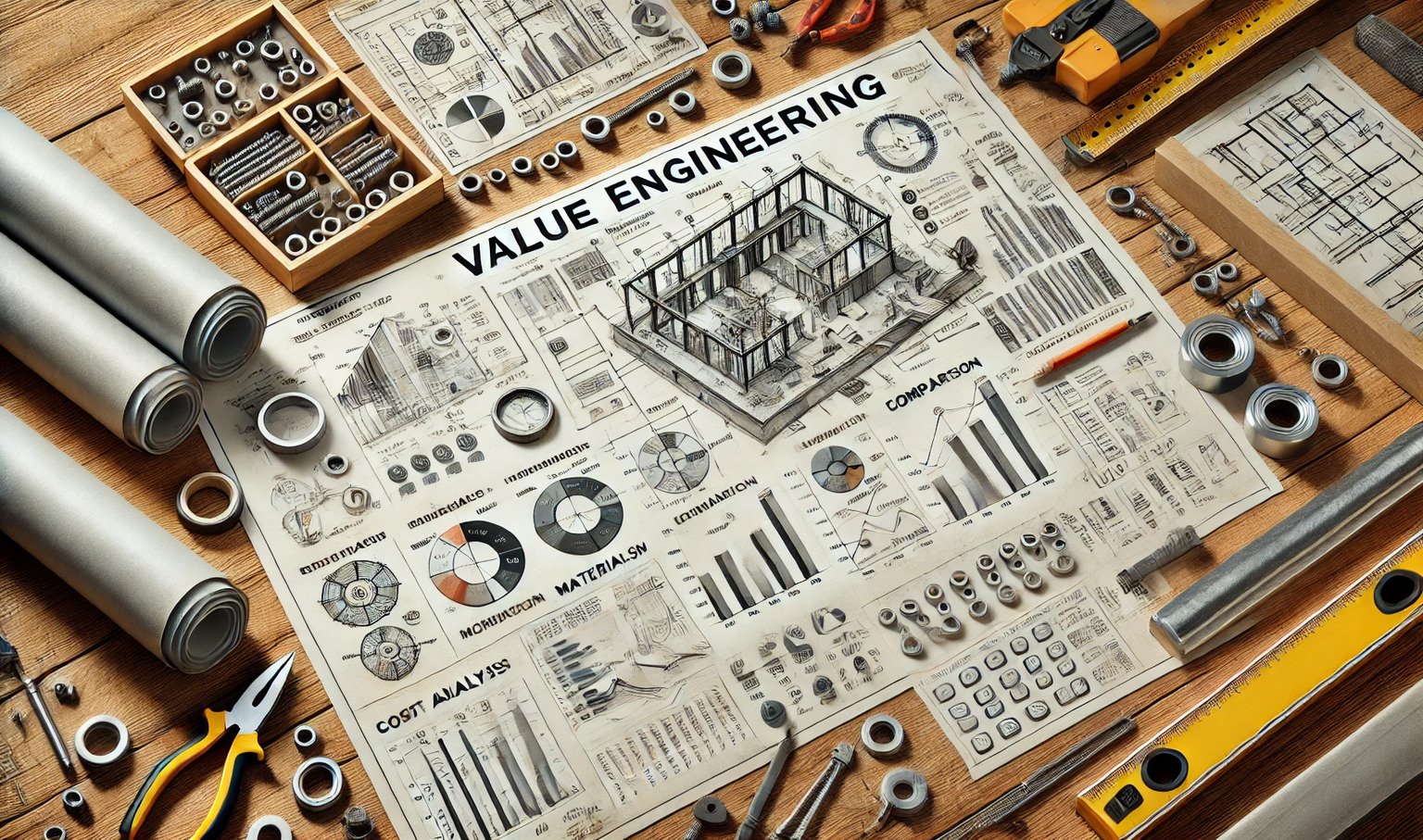Value engineering (VE) is a systematic approach used in construction to optimize project value. It aims to achieve the best balance between cost, quality, and performance. This method involves analyzing every component of a project to ensure resources are used effectively. The result is a construction process that meets objectives without unnecessary expenses.
The concept originated during World War II when material shortages required creative solutions. Today, it is a vital part of construction planning and execution. Many projects rely on this method to achieve their goals while staying within budget and meeting client expectations.
The Core Idea Behind Value Engineering
Value engineering focuses on identifying and removing waste. This doesn’t mean cutting corners or reducing quality. Instead, it emphasizes finding alternatives that provide equal or better results at a lower cost. Engineers and construction professionals collaborate to assess project elements and determine where savings can be made.
This approach looks beyond upfront costs. It considers the entire lifecycle of a project, including maintenance, durability, and energy efficiency. These factors ensure that savings do not compromise long-term performance.
Key Principles of Value Engineering
Value engineering operates on several principles that guide its process:
- Defining Project Objectives: Clear goals ensure that the team understands the purpose of the project.
- Analyzing Current Designs: This involves evaluating existing plans to identify inefficiencies.
- Exploring Alternatives: The team proposes changes or substitutions to improve outcomes.
- Evaluating Costs vs. Benefits: Each alternative is weighed for its impact on cost and quality.
- Implementing Solutions: Approved changes are integrated into the construction plan.
These principles ensure that every project aspect is examined for potential improvements.

Steps in the Value Engineering Process
The process follows a structured methodology to maximize results.
1. Information Gathering
This step collects all relevant data about the project. This includes plans, budgets, materials, and specifications. A clear understanding of the project ensures no detail is overlooked.
2. Function Analysis
Each component or feature of the project is examined to determine its purpose. This helps identify areas where costs can be reduced without affecting essential functions.
3. Creative Brainstorming
The team generates ideas for alternative solutions. This step focuses on innovation and exploring new approaches.

4. Evaluation and Feasibility
Proposed ideas are analyzed for practicality and effectiveness. This ensures that only viable options move forward.
5. Development and Implementation
Selected ideas are refined and incorporated into the final construction plan.
6. Monitoring and Review
The changes are tracked to ensure they deliver the intended benefits.
Each step builds upon the last, creating a cohesive strategy for improvement.
Benefits of Value Engineering in Construction
The advantages of value engineering extend beyond cost savings.
- Cost Control: Optimizing designs reduces unnecessary expenses.
- Improved Efficiency: Streamlining processes leads to faster project completion.
- Sustainability: Using alternative materials or methods can reduce environmental impact.
- Enhanced Quality: Changes focus on maintaining or improving project standards.
- Stakeholder Satisfaction: Meeting project goals within budget increases client confidence.
These benefits make value engineering an essential tool for construction professionals.

Common Applications in Construction
Value engineering can be applied to various aspects of a project.
Material Selection
Alternative materials with similar properties can reduce costs while maintaining quality.
Structural Design
Simplifying designs without compromising safety can lower expenses.
Mechanical Systems
Upgrading to energy-efficient systems can reduce long-term operating costs.
Construction Techniques
Adopting innovative methods can save time and labor.

These applications demonstrate how value engineering can impact multiple areas of construction.
Challenges in Value Engineering
While value engineering offers many benefits, it also presents challenges.
- Resistance to Change: Stakeholders may hesitate to alter established plans.
- Balancing Cost and Quality: Achieving savings without affecting performance requires skill and experience.
- Time Constraints: Conducting a thorough analysis can delay the project timeline.
- Coordination: Collaboration between multiple parties demands effective communication.
Overcoming these challenges requires expertise and a commitment to project goals.
Real-Life Examples
Value engineering has been successfully implemented in numerous projects.
- Bridge Construction: Switching to prefabricated components reduced labor costs and sped up the timeline.
- Office Buildings: Using energy-efficient lighting systems cut operating expenses.
- Residential Projects: Substituting high-cost finishes with durable alternatives lowered costs without affecting aesthetics.
These examples highlight the versatility of value engineering in achieving project success.
The Role of Collaboration
Value engineering thrives on teamwork. Engineers, architects, contractors, and clients must work together to evaluate options. Open communication ensures that all perspectives are considered.

This collaborative approach leads to innovative solutions that benefit the entire project.
When to Use Value Engineering
The best time to apply value engineering is during the design phase. Early implementation allows for greater flexibility and cost savings. However, it can also be used later in the project to address unexpected challenges.
Adapting the process to different project stages ensures maximum benefits.
Final Thoughts
Value engineering is more than a cost-cutting strategy. It is a comprehensive approach that optimizes construction projects for success. By evaluating every detail and exploring alternatives, it delivers results that balance cost, quality, and performance.
Want to learn how value engineering can transform your next construction project? Contact us today and discover smarter solutions for your construction needs!

